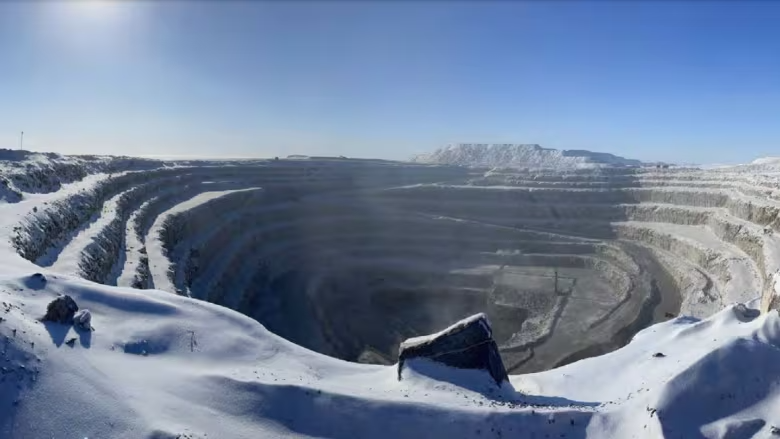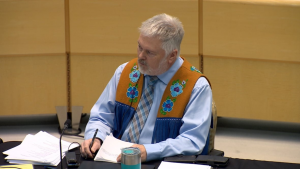Canada News
N.W.T. gov’t to review impact benefit agreements between mines and Indigenous groups

The Ekati diamond mine in the N.W.T. Burgundy Diamond Mines, its owner, has raised concern about changes to the Mineral Resources Act. (Burgundy Diamond Mines)
By
Indigenous groups will have say over whether agreements should be renegotiate
The N.W.T. government says it’s aware some mining companies are not happy with uncertainty brought by changes to mining legislation — particularly when it comes to their impact benefit agreements with Indigenous governments and stakeholders.
The forthcoming Mineral Resources Act may require these companies to pay more to communities and Indigenous groups affected by mining operations.
While the act was passed back in 2019, the government is still working on developing regulations. An initial draft is expected to be released by the end of the year or in early 2025.
The act will govern mining and exploration in the N.W.T., detailing aspects such as benefit agreements, the life of claims, and production licences.
Recently, Burgundy Diamond Mines, which owns Ekati, raised several concerns about the regulations in a letter to Premier R.J. Simpson. (That letter, though originally posted publicly to the Mackenzie Valley Land and Water Board registry, has since been removed.)
The company wrote that if it’s required to renegotiate its impact benefit agreements, it could “further [erode] Ekati’s financial viability,” and asked the N.W.T. government to provide assurance that the existing agreements would be accepted as-is.
Burgundy said in an email that the company has no comments about the letter as it was released by a third party and sent to the premier ahead of an upcoming meeting. The company added it will update the public once progress is made.
Gov’t working on Mineral Resources Act regulations
Menzie McEachern, the assistant deputy minister of mineral and petroleum resources for the Department of Industry, Tourism and Development, said even once the regulations are finalized, the act is still “a couple of years out right now” from coming into force.

“We’re going to do our best to balance those interests and find something that works for everybody,” he said, referring to impact benefit agreements.
He said the government will examine the agreements on a case-by-case basis. He said existing agreements could be kept or new options could be looked at.
“The field is wide open in terms of the types of agreements reached between Indigenous governments and industry, in order for those projects to go forward and produce and sell their minerals,” McEachern said.
Until the Mineral Resources Act comes into force, there is no legislative requirement for these agreements, McEachern added. Rather, they have become a common industry practice to have a collaborative relationship with the affected Indigenous organizations.
“These are private bilateral agreements between Indigenous governments and mining companies,” he said. “They include benefits to the communities in terms of training, jobs, contracts or business opportunities.”
Former MLA doubts renegotiation will happen
Kevin O’Reilly is a former MLA for Frame Lake and former executive director of the Independent Environmental Monitoring Agency set up for the Ekati mine.
O’Reilly said his opinion is that the N.W.T. government rarely urges mining companies to make significant changes and he doubts they will be forced to renegotiate their impact benefit agreements.

“I find it very hard to believe that the company would be required to renegotiate impact and benefit agreements. I just don’t think that’s going to happen,” O’Reilly said.
He said when he was an MLA, he was vocal about the mining industry’s access to government officials responsible for developing mining regulations.
O’Reilly said the public will have to wait to see the wording of the regulations when they are released.
CBC News reached out to Marc Whitford, president of the North Slave Métis Alliance, which has an existing agreement with Burgundy. He declined to comment and said meetings with the mines are scheduled for the coming weeks.
Burgundy also has impact benefit agreements with Kugluktuk and the Kitikmeot Inuit Association, Yellowknives Dene First Nation and Łutsel K’e First Nation, and the Tłı̨chǫ government.





















